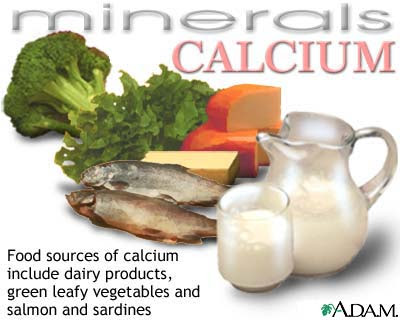Wednesday, May 20, 2009
The Interplay of Calcium, Iron and Fiber
 We eat for our health and to feed our our bones, blood, and bowels, but some nutrients just don't play well with others. Take calcium and iron for instance. Calcium can reduce your ability to absorb iron by as much as 50%. However, calcium only interferes with non-heme iron, which comes from plant-based foods, not with heme iron, found in meat. This interplay between calcium and iron is really only important if you suffer from anemia, because although short-term iron absorption is reduced by calcium, studies have found that iron stored in the blood is not.
We eat for our health and to feed our our bones, blood, and bowels, but some nutrients just don't play well with others. Take calcium and iron for instance. Calcium can reduce your ability to absorb iron by as much as 50%. However, calcium only interferes with non-heme iron, which comes from plant-based foods, not with heme iron, found in meat. This interplay between calcium and iron is really only important if you suffer from anemia, because although short-term iron absorption is reduced by calcium, studies have found that iron stored in the blood is not. When it comes to calcium, fiber binds to the mineral, reducing its absorption. Studies have found that wheat fiber reduces calcium absorption by about half. If you're like most folks and you aim to get a jump-start on fulfilling your recommended daily intake of fiber and calcium with your bowl of breakfast cereal, choose cereals that feature oats or other grains since they don't seem to block the calcium.
Ultimately, if you eat a well balanced diet and aim to eat your nutrients rather than find them in supplements, you're probably getting all the vitamins, minerals, and fiber you need. Just think of this post as a little food for thought.
Thanks Fit!
Labels: anemia, calcium, eating healthy, essential nutrient, fiber, heme iron, iron, nutrients
Monday, April 13, 2009
Great Source of Iron --> LAMB
 Did you know that there are different types of iron?
Did you know that there are different types of iron?Iron is a mineral essential to all body cells and is linked with protein to form the hemoglobin that carries oxygen throughout your body. Although iron can be found in a variety of different foods, how well it is absorbed by the body is determined by whether it is in the form of heme or non-heme iron. Heme iron is found in fish, poultry and meats such as lamb. It is much more easily absorbed than the non-heme iron found in fruits, vegetables, legumes, grains and nuts. A 4-ounce serving of lamb provides 15% of the daily value for this important mineral. And because lamb provides heme iron, it is easily absorbed and used by your body. Lamb is also a rich source of B vitamins, selenium and protein.
Select organically-grown lamb or grass-fed lamb whenever possible, it is much less likely to have been injected with the hormones so commonly given to beef, pork and chickens. One reason for this is because baby lamb are often still drinking mother's milk and what we usually call lamb is the pinkish meat from young animals that are usually only 5-6 months old (up to one year) so do not require the hormones that would help them grow into a large animal.
Source
Labels: grass-fed, healthy diet, heme iron, iron, lamb, meat, minerals